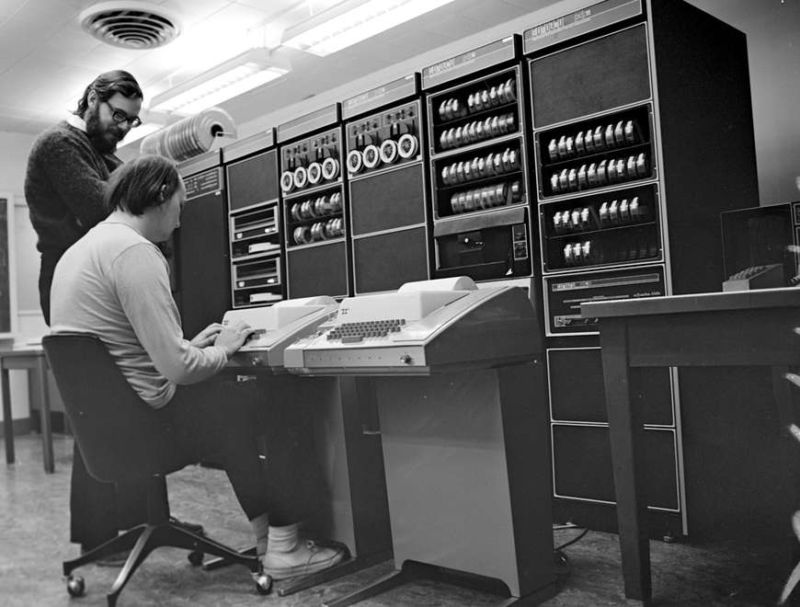
Maybe its pervasiveness has long obscured its origins. But Unix, the operating system that in one derivative or another powers nearly all smartphones sold worldwide, was born 50 years ago from the failure of an ambitious project that involved titans like Bell Labs, GE, and MIT. Largely the brainchild of a few programmers at Bell Labs, the unlikely story of Unix begins with a meeting on the top floor of an otherwise unremarkable annex at the sprawling Bell Labs complex in Murray Hill, New Jersey.
It was a bright, cold Monday, the last day of March 1969, and the computer sciences department was hosting distinguished guests: Bill Baker, a Bell Labs vice president, and Ed David, the director of research. Baker was about to pull the plug on Multics (a condensed form of MULTiplexed Information and Computing Service), a software project that the computer sciences department had been working on for four years. Multics was two years overdue, way over budget, and functional only in the loosest possible understanding of the term.
Trying to put the best spin possible on what was clearly an abject failure, Baker gave a speech in which he claimed that Bell Labs had accomplished everything it was trying to accomplish in Multics and that they no longer needed to work on the project. As Berk Tague, a staffer present at the meeting, later told Princeton University, “Like Vietnam, he declared victory and got out of Multics.”
Within the department, this announcement was hardly unexpected. The programmers were acutely aware of the various issues with both the scope of the project and the computer they had been asked to build it for.
Read 48 remaining paragraphs | Comments
More...
